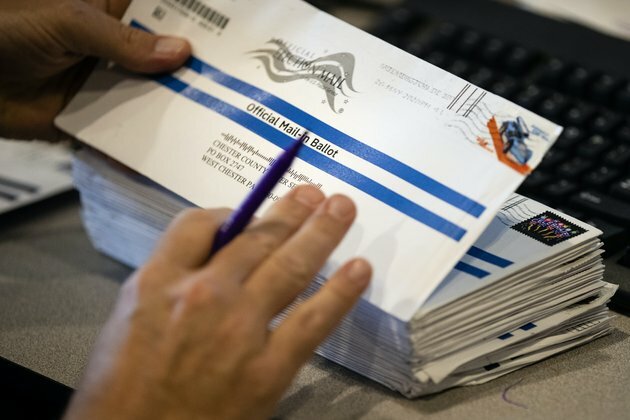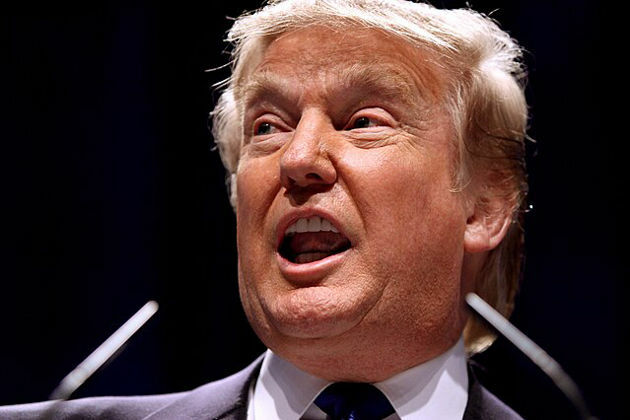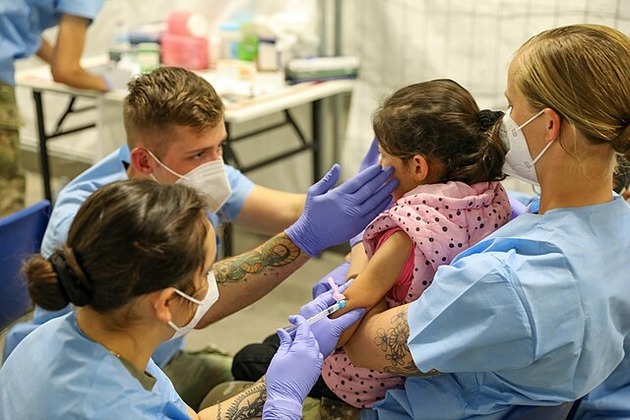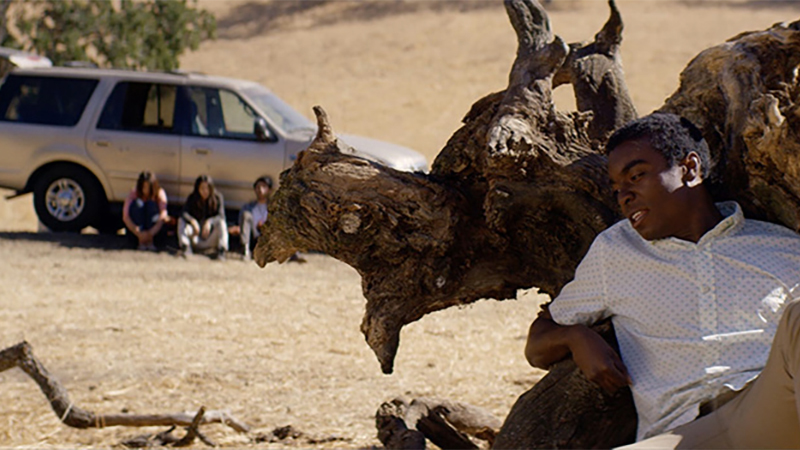Research on voting by mail says it's safe - from fraud and disease
The Conversation
16 Jul 2020, 18:10 GMT+10

As millions of Americans prepare to vote in November - and in many cases, primaries and state and local elections through the summer as well - lots of people are talking about voting by mail. It is a way to protect the integrity of the country's voting system and to limit potential exposure to the coronavirus, which continues to spread widely in the U.S.
I am a political scientist and part of a National Academy of Public Administration working group offering recommendations to ensure voter participation as well as public confidence in the election process and the outcome during this coronavirus pandemic. To meet that goal, our work has found that state and local governments will need to make significant adjustments to their voting systems this year - changes that will likely require new federal funding.
Our recommendations - which include ways to reduce health risks from in-person voting as well as to expand access to, and ease the process of, mail-in voting - are based on a thorough review of the evidence.
Some critics - including President Donald Trump - have cast doubt on the integrity of mail-in voting, even though some of them have voted by mail in the past. Conservative groups are suing to limit mail-in voting, and some federal judges seem reluctant to defend voters' rights if it means intervening in state-level decisions. The president's reelection campaign is suing to block mail-in voting at the same time it pushes his backers to be ready to vote by mail.
The evidence we reviewed finds that voting by mail is rarely subject to fraud, does not give an advantage to one political party over another and can in fact inspire public confidence in the voting process, if done properly.
Voter fraud is rare overall, and rarer by mail
When fraud does occur, election administrators identify it and take action, correcting election returns and prosecuting those responsible. That's what happened in North Carolina in 2018, when a Republican political activist paid others to collect incomplete absentee ballots so they could be filled out to vote for the Republican candidate. The activist was arrested, charged and convicted - and the entire election was invalidated and run again.
But overall election fraud is rare.
A database of election fraud reports maintained by the conservative Heritage Foundation reports approximately 1,200 allegations of voter fraud - for which there were 1,100 criminal convictions - for voter fraud since 2000.
Of those, only 204 allegations, and 143 convictions, involved mail-in ballots. That is a tiny fraction of the roughly 250 million mail-in ballots cast over those two decades. In addition, problems are extremely rare in states that rely primarily on vote by mail.
Of course, any voting system must be protected against fraud. Election officials are already doing that, including prosecuting fraud attempts.
Allowing people to vote by mail does not give one party an advantage over the other - either in terms of party members who turn out to vote, or the outcome of the election.
That's the finding from several recent studies, which confirm what earlier research had found.
As far back as 2001, Oregon's vote-by-mail system was found not to disproportionately mobilize or discourage voting by Democrats or Republicans. In 2008, a study found little difference between Democratic and Republican voters in Los Angeles County, in terms of who voted by absentee ballot or whose ballots were disqualified.
A recent survey has found that people of all political stripes who are concerned about the coronavirus pandemic support letting everyone vote by mail.
The public can learn to trust mail-in voting
There is one problem with mail-in voting, but it's a problem with voting overall: A 2019 Gallup poll found that 59% of Americans lack confidence in the honesty of elections for a range of reasons, including concerns about interference from foreign powers or domestic political elites, security worries and general frustration.
Americans' confidence is lower than that reported in almost every other democratic country.
With voting by mail, research has found people to be more concerned that their vote will not be counted correctly, as compared with voting in person. One 2008 study found that white absentee voters were less confident their ballots would be counted correctly than white in-person voters.
A 2008 telephone survey found that about half of respondents were concerned that mail-in voting might lead to increased fraud, though the report on survey results didn't describe specific types of fraud the respondents feared.
Research from 2015 mostly confirmed those findings, revealing that people in states with more absentee voting tend to believe that various types of voter fraud are more common. That same study also found that absentee voters are less confident their vote will count than people who voted in person either before Election Day or on the day itself.
Some concerns about mailed-in ballots not being counted may be legitimate: A 2018 study in Florida found that mailed-in ballots from younger voters and voters who needed assistance marking their ballots were rejected more often than others. That indicates standards for rejecting mailed-in ballots may not be uniform, or that some voters' signatures change over time in ways election officials may not expect or accept.
However, research from California in 2011 found that frequent public communication from election officials can increase voters' faith in voting by mail.
Mail-in voting is safe, reliable and trustworthy
All this evidence leads to some clear conclusions: Voting by mail is - or, with training of election officials and the use of common standards, can be made - just as honest as in-person voting. Officials can help ensure public confidence by being transparent and communicating their plans and preparations.
People are more interested in voting by mail than ever before, because of the pandemic.
Epidemiology indicates that voting from home is safer than going to a crowded public building to vote.
November's election will likely involve far more mail-in voting than in the past. To retain voters' confidence in its integrity, our review indicates that local election offices and the U.S. Postal Service will need to make substantial additional preparations to provide mail-in ballots and to handle the increased volume of mailed-in ballots.
And the public needs to understand that the results of the vote may not be clear for days after Election Day. It takes longer for election workers to open, verify signatures, and count mail ballots than it does to run voting machines, and some states - such as Michigan - do not permit mail ballots to be opened until Election Day.
But when the tallies are announced, if large numbers of Americans have voted by mail, the public can feel confident that the process was fair and the results are accurate.
Author: Edie Goldenberg - Professor of Public Policy; Professor of Political Science, University of Michigan 
 Share
Share
 Tweet
Tweet
 Share
Share
 Flip
Flip
 Email
Email
Watch latest videos
Subscribe and Follow
Get a daily dose of Orlando Echo news through our daily email, its complimentary and keeps you fully up to date with world and business news as well.
News RELEASES
Publish news of your business, community or sports group, personnel appointments, major event and more by submitting a news release to Orlando Echo.
More InformationInternational
SectionSources: Meta won’t alter data model, faces fresh EU charges
BRUSSELS, Belgium: Meta is holding firm on its controversial pay-or-consent model, a move that could lead to fresh antitrust charges...
Trump’s tariff push could push US rates above 20%, ICC says
LONDON, U.K.: American consumers and businesses could soon face the highest overall tariff burden in more than a century, according...
U.S. Urged to Investigate After Israeli Settlers Beat Palestinian-American to Death
The family of Sayfollah Saif Musallet, a 20-year-old American citizen who was beaten to death by Israeli settlers in the occupied West...
New Hampshire federal court ruling defies Trump’s citizenship move
CONCORD, New Hampshire: A federal judge in New Hampshire issued a crucial ruling on July 10 against President Donald Trump's executive...
Houthis attack cargo ship in Red Sea, raising maritime safety fears
DUBAI, U.A.E.: A cargo ship flagged under Liberia, known as the Eternity C, sank in the Red Sea following an attack executed by Yemen's...
Trump administration restarts Ukraine arms deliveries
WASHINGTON, D.C.: The Trump administration has started sending some weapons to Ukraine again, just a week after the Pentagon told officials...
Florida
SectionU.S. Urged to Investigate After Israeli Settlers Beat Palestinian-American to Death
The family of Sayfollah Saif Musallet, a 20-year-old American citizen who was beaten to death by Israeli settlers in the occupied West...
CDC: US records 1,288 measles cases, most since 1992 outbreak
ATLANTA, Georgia: The United States is facing its worst measles outbreak in more than three decades, with 1,288 confirmed cases so...
Shohei Ohtani (NL), Gleyber Torres (AL) to lead off in All-Star Game
(Photo credit: Darren Yamashita-Imagn Images) The American League and National League announced their lineups for Tuesday's All-Star...
Teddy Bridgewater suspended from HS coaching job
(Photo credit: Chet Peterman / Special to The Post / USA TODAY NETWORK via Imagn Images) Former NFL quarterback Teddy Bridgewater...
Royals place RHP Michael Lorenzen (oblique) on IL
(Photo credit: Rick Scuteri-Imagn Images) The Kansas City Royals placed right-hander Michael Lorenzen on the 15-day injured list...
Tulsi Gabbard explains why fight against deep state is slow
Government insiders are resisting efforts to rein in their power, the US director of national intelligence has said US Director of...












